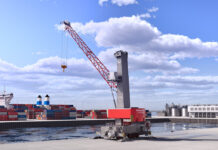At the EU-Japan summit in Tokyo, Presidents Jean-Claude Juncker and Donald Tusk, and Japanese Prime Minister Shinzo Abe, signed yesterday the EU-Japan Economic Partnership Agreement (EPA).
The trade agreement is the biggest ever negotiated by the EU and will create an open trade zone covering over 600 million people..
The agreement will remove the vast majority of the €1 billion of duties paid annually by EU companies exporting to Japan, and has led to the removal of a number of long-standing regulatory barriers, for example on cars. It will also open up the Japanese market of 127 million consumers to key EU agricultural exports and will increase EU export opportunities in a range of other sectors.
The Economic Partnership Agreement will also in addition strengthen cooperation between Europe and Japan in a range of areas, reaffirm their shared commitment to sustainable development, and include for the first time a specific commitment to the Paris climate agreement.
The key parts of the agreement
With regards to agricultural exports from the EU, the agreement will, in particular:
- scrap Japanese duties on many cheeses such as Gouda and Cheddar (which currently are at 29.8%) as well as on wine exports (currently at 15% on average);
- allow the EU to increase its beef exports to Japan substantially, while on pork there will be duty-free trade in processed meat and almost duty-free trade for fresh meat;
- ensure the protection in Japan of more than 200 high-quality European agricultural products, so called Geographical Indications (GIs), and the protection of a selection of Japanese GIs in the EU.
The agreement also opens up services markets, in particular financial services, e-commerce, telecommunications and transport. It furthermore:
- guarantees EU companies access to the large procurement markets of 48 large Japanese cities, and removes obstacles to procurement in the economically important railway sector at national level;
- addresses specific sensitivities in the EU, for instance in the automotive sector, with transition periods of up to 7 years before customs duties are eliminated.
The agreement also includes a comprehensive chapter on trade and sustainable development; sets very high standards of labour, safety, environmental and consumer protection; strengthens EU and Japan’s commitments on sustainable development and climate change and fully safeguards public services.
Concerning data protection, the EU and Japan concluded the negotiations on reciprocal adequacy on 16 July, which will complement the Economic Partnership Agreement. They agreed to recognise each other’s data protection systems as ‘equivalent’, which will allow data to flow safely between the EU and Japan, creating the world’s largest area of safe data flows.
In 2013 EU governments instructed the European Commission to start negotiations with Japan. On 6 July 2017 the European Union and Japan reached an agreement in principle on the main elements of the EU-Japan Economic Partnership Agreement.
Next steps
The agreement is now awaiting ratification by the European Parliament and the Japanese Diet following which it could enter into force in 2019.
At the same time, negotiations with Japan continue on investment protection standards and investment protection dispute resolution. The firm commitment on both sides is to reach convergence in the investment protection negotiations as soon as possible, in light of their shared commitment to a stable and secure investment environment in Europe and Japan.




